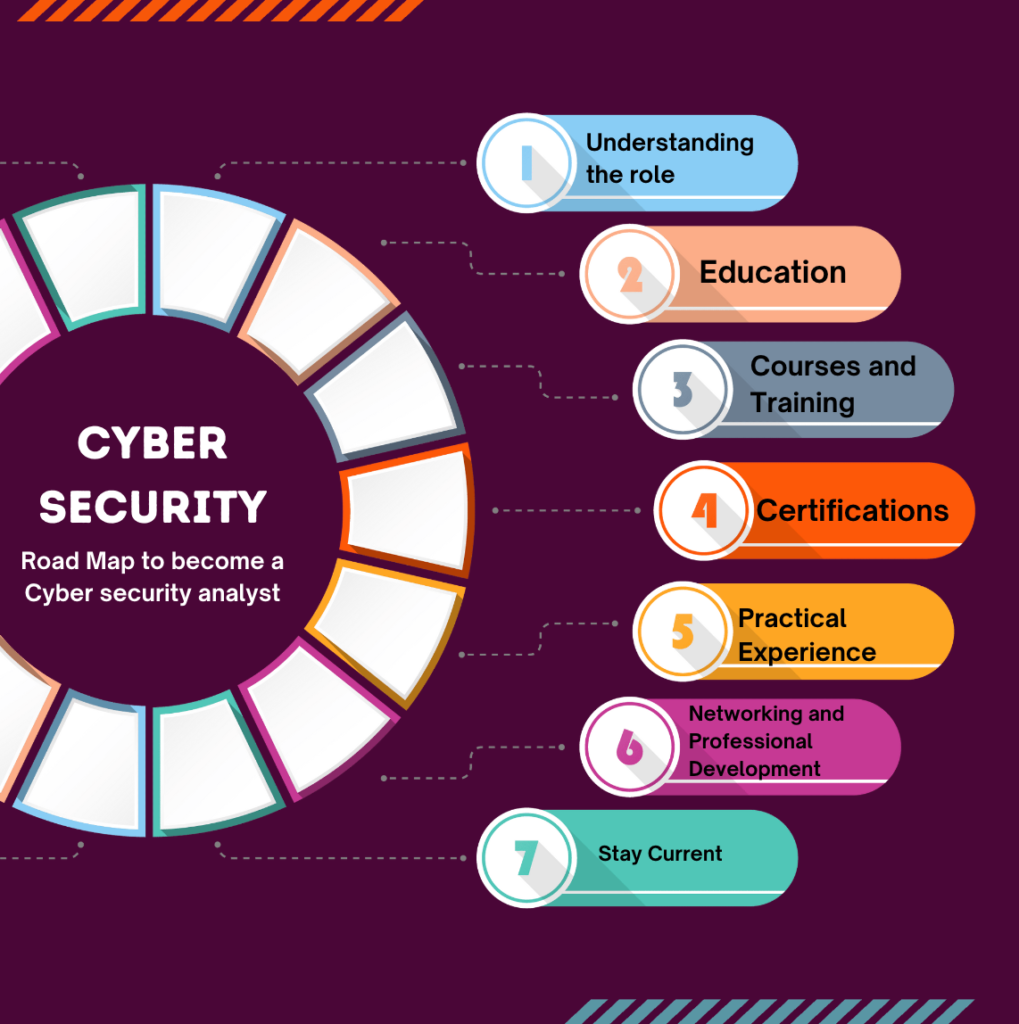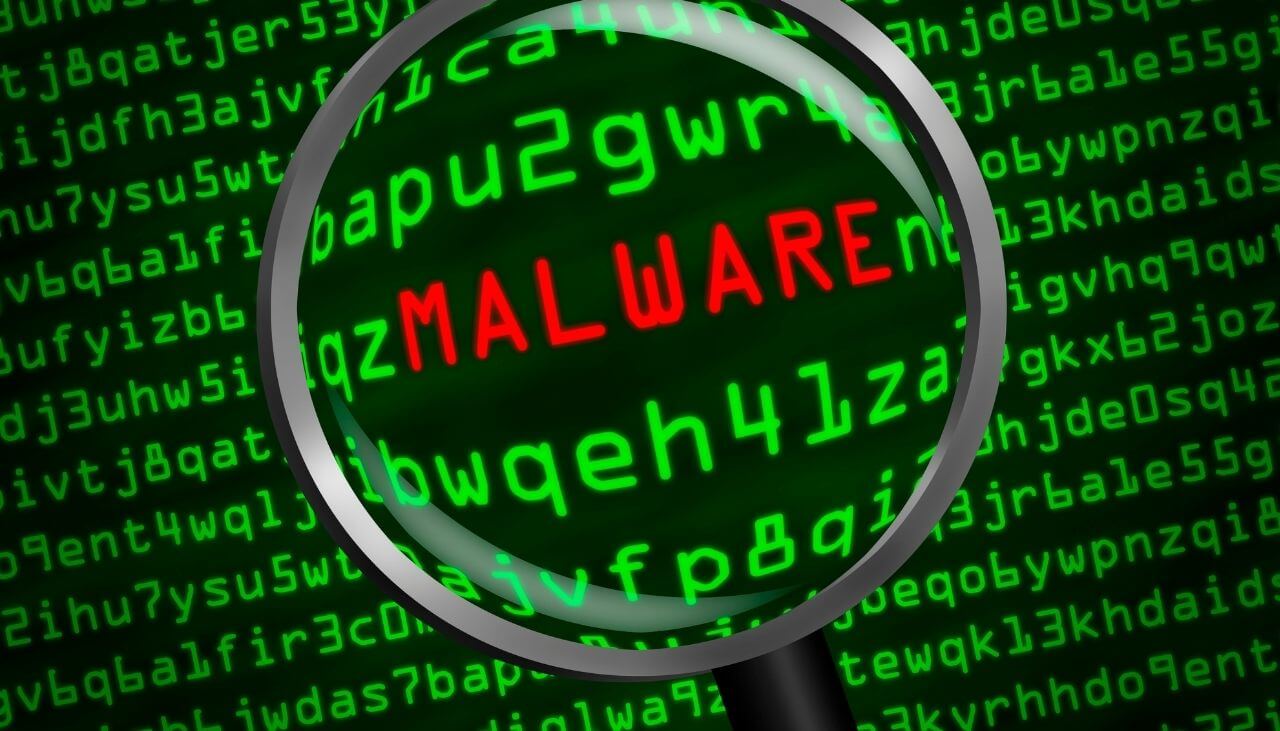A Road Map to Cyber Security Career

In the ever-evolving landscape of cybersecurity, the demand for skilled professionals continues to soar. If you’re aspiring to become a Cybersecurity Analyst, you’re on the right track to joining a dynamic and essential field. In this guide, we’ll explore the steps, certifications, and educational routes to help you embark on a successful journey as a Cybersecurity Analyst.
1. Understanding the Role:
Before delving into certifications and education, it’s essential to grasp the role of a Cybersecurity Analyst. These professionals are responsible for protecting an organization’s computer systems and networks from cyber threats, making them a critical line of defense against cyberattacks.
2. Educational Background:
While there isn’t a specific degree requirement for cybersecurity roles, a strong educational foundation can significantly benefit your career. Consider pursuing a bachelor’s degree in computer science, information technology, or a related field. Alternatively, specialized degrees in cybersecurity or information security are becoming increasingly popular.
3. Online Courses and Specialized Training:
Online courses provide flexibility and accessibility, allowing aspiring cybersecurity analysts to acquire valuable skills from anywhere in the world. Platforms like Coursera, edX, and Cybrary offer courses in cybersecurity fundamentals, ethical hacking, and incident response. Consider specialized training programs that align with the skills demanded in the field.
4. Essential Certifications
Certifications play a pivotal role in showcasing your expertise to potential employers. Here are some key certifications that can boost your profile as a Cybersecurity Analyst:
- CompTIA Security+: A foundational certification covering essential security concepts.
- Certified Information Systems Security Professional (CISSP): A globally recognized certification for experienced security professionals.
- Certified Ethical Hacker (CEH): Focuses on the tools and techniques used by ethical hackers to assess and strengthen security measures.
- CompTIA Cybersecurity Analyst (CySA+): Targets skills related to threat detection and response.
5. Practical Experience
Hands-on experience is invaluable in the cybersecurity field. Consider participating in internships, volunteering for security-related projects, or contributing to open-source initiatives. Practical exposure will enhance your problem-solving skills and provide real-world context to your theoretical knowledge.
6. Networking and Professional Development:
Building a professional network is crucial. Attend industry conferences, join cybersecurity forums, and engage with professionals on platforms like LinkedIn. Networking can open doors to opportunities, mentorship, and collaboration.
7. Stay Current with Industry Trends:
Cybersecurity is a dynamic field with constantly evolving threats. Stay informed about the latest trends, emerging technologies, and industry best practices. Subscribe to reputable cybersecurity blogs, podcasts, and follow influential professionals on social media.
Conclusion:
Becoming a Cybersecurity Analyst requires a combination of education, certifications, hands-on experience, and a commitment to continuous learning. Tailor your educational path based on your interests and career goals and remember that the journey to becoming a cybersecurity professional is both challenging and rewarding. Stay curious, stay diligent, and stay secure!
You think you have a story worth everyone’s time? SUBMIT A STORY and we will publish it.
Share this content:




Post Comment